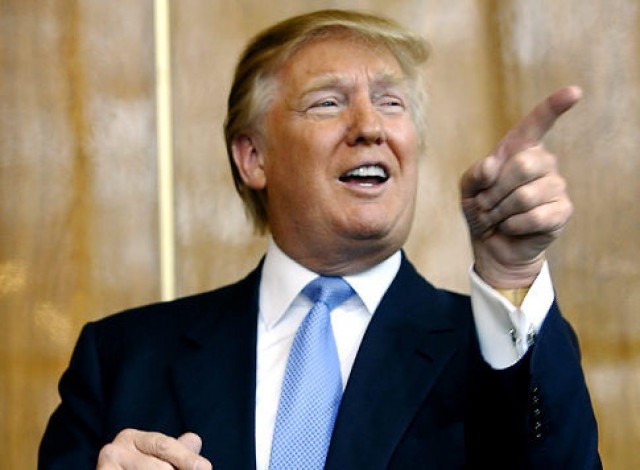Spectrum: Perverse appetites that cripple an economy


Joram Nyathi
LATELY, hardly a day passes without the nation reading about someone being caught or arrested at the border or Harare International Airport trying to salt away thousands of American dollars.
The highest figure so far was $87,000 found in the possession of two Rwandese nationals.
There are many others who have been arrested trying to smuggle up to 300 bales of secondhand clothes and other merchandise into the country; it is often difficult to state with exactitude how much they smuggled out in cash to purchase such goods.
All this is sad. Sad because Zimbabweans have used and abused past experiences to cripple their own economy or scuttle every effort to achieve a turnaround.
When Government then seeks to intervene with unpalatable measures people complain about not being consulted, as has happened with the mooted introduction of bond notes in October this year.
The issue of hoarding foreign currency, and American dollars in particular, is a prime example of a habit born of necessity being perpetuated far beyond the emergency and seemingly becoming an end in itself.
The practice of hoarding cash is a product of the hyperinflationary period in Zimbabwe, well before it climaxed in advent of bearer cheques in 2007/08.
The period of high inflation gave us the black market, or informal market, where people started trading in foreign currency when it was still not official to use it.
That is how the Zimbabwe dollar was destroyed: in the black market where individuals changed “burned” their hard currency for Zimbabwe dollars to purchase goods.
Later it was rumoured that Government departments frequently invaded the same informal market to purchase US dollars and British pounds to meet essential imports.
The diaspora fed the black market to support their families back home because it was cheaper than using official channels such as Homelink.
Individuals who received remittances through money transfer agencies “burnt” a few dollars to meet their immediate requirements and kept stashed away the rest.
Ordinary Zimbabweans later joined the fray in search of South African rand to purchase foodstuffs for on consumption or resale.
The shortage of goods in local retail shops and supermarkets forced many people to keep piles of cash at home.
This they carried around in case they chanced upon something to buy. With both the cash and goods often unavailable in banks and shops respectively, it fast became a matter of necessity to move about with cash once one got it, often from the moneychangers.
That habit did not die with the birth of the multicurrency system in 2009, that is, despite it now being legal to purchase in rand, British pounds or American dollars.
It didn’t die despite the economic stability and the abundance of all manner of goods in the shops since dollarisation.
Instead, it was the South African rand that came increasingly under speculative attacks as small traders crossed the border to buy goods for resale.
The current shortage of American dollars in the banks can be traced back to those years of hyperinflation and bearer cheques when people responded to the pressure of necessity to store away cash.
With the volatility of the South African rand, the American dollar soon converted into a commodity, from being a store of value and a medium for daily transactions.
The banking sector has not helped matters. There have been no incentives for people to change their attitudes and restore confidence that their savings are safe.
That failure by banks to adapt to the new economy and “emergency” mindset opened opportunities for mobile phone operators who made the local transfer of cash so much easier to the remotest reaches of the country.
The obverse for the economy was that there was no need to bank. The culture of hoarding cash only strengthened.
I only transfer what I have to at that point and keep the rest. The result is “saving” means keeping the cash yourself or buying a motor vehicle, resulting in the paradox of a nation said to be in financial dire straits whose borders are clogged with daily vehicle imports.
Easy access to foreign currency has come at a huge cost; to the brain and to the economy. It whetted our appetites for everything foreign, from vehicles to tissue paper and toothpicks.
It sharpened our desire for choice while empowering us to indulge our every whim. The long and short of it is that the multicurrency system fed the nation’s gluttony without nourishing the productive base.
For the past 10 years we have been everything else but Zimbabwean, except only in name: using foreign currencies and eating foreign goods while our own industry collapsed or starved to death.
That misguided self-indulgence was not going to last forever. It is time to reckon with that earthly reality. It is time for self-adjustment.
Government will have to intervene for us to regain our balance and a sense of who we are against our ability.
It must come up with stringent measures to cure the foreign mind in the nation, which now carries a lot of political baggage about it.
The introduction of bond notes should only be a starting point. That means we must tame our own foreign appetites and begin eating what we produce.
We need to empower those who produce. The current protests and obsession with the US dollar is because we love to consume what is produced by others from the land, which we shun here because we think we are too educated.
How do you have an educated nation which cannot feed itself?
For strategic reasons, and while we all absorb the shock of bond notes, it is prudent that Government has allowed the multicurrency system to subsist.
Withdrawal limits have been forced on the populace by circumstances. Slowly the nation is beginning to embrace plastic money.
In restricting the use of foreign currency in the economy, and bringing in bond notes, Government is in no way trying to reinvent the wheel. It is merely regaining its sense after 10 years of almost criminal dereliction of duty.
Further, Government needs to put a cap on official transactions which can be conducted in cash, particularly foreign currency.
For instance, it should be illegal for any purchase above $300 to be done in hard currency.
There must be an explanation about the official source of the cash; such as a bank and why the goods must be paid for in cash. It should be possible to monitor how goods in shops are paid for.
Largely, foreign currency should be just that, foreign and accessible only for critical productive imports for industry, hospitals (medicines) and the agricultural sector (tractors and irrigation equipment).
Wholesalers and other authorised importers should apply for forex and use electronic money transfers to pay instead of carrying cash across the border.
Once such a decision is taken together with the enabling legislation, it must be enforced impartially.
We have no doubt eventually much of the cash currently stashed in boxes will be released when there is no other legal way of using it locally or smuggling it out of the country.
Government has made clear that the multicurrency system is here for the long haul.
Why should people continue to hold on to bad habits born of necessity, to hoard cash and starve the economy?
It’s time to return to basics: let’s eat what we produce and our own currency should fund that production and we earn foreign currency from exports.










Comments